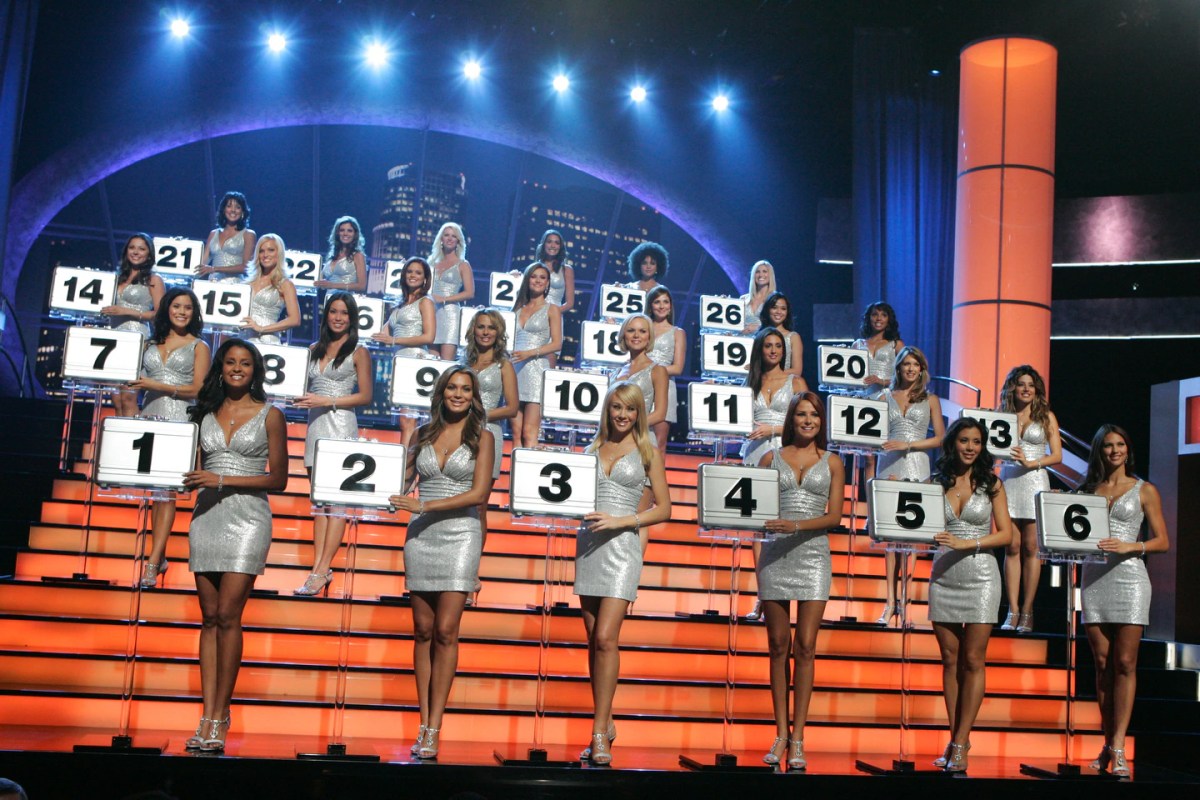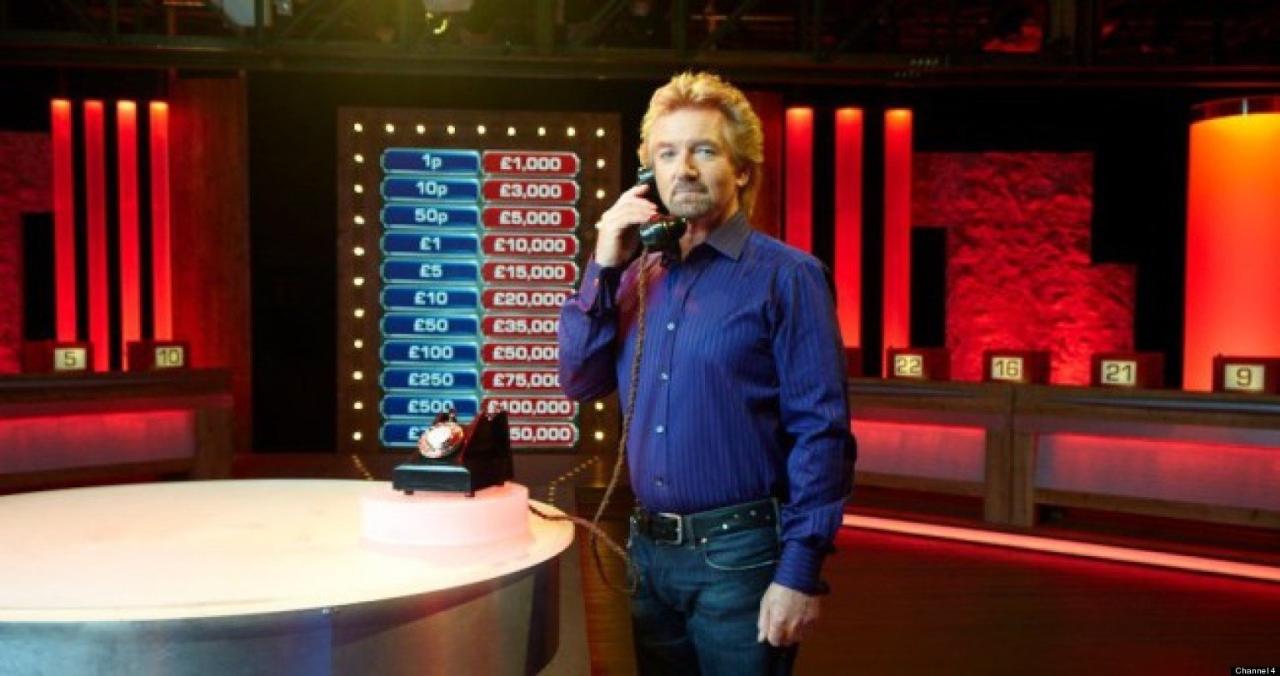Deal or No Deal Island contestants face unique challenges unlike any other reality show. This isn’t just about winning money; it’s about surviving the isolation, the pressure, and the psychological toll of intense competition in a stunning, yet unforgiving, island environment. We’ll explore the selection process, the personalities and strategies of the players, and the lasting impact this experience has on their lives.
Get ready to uncover the secrets behind the show’s dramatic twists and turns.
From the rigorous application process to the diverse (or sometimes homogenous) backgrounds of the contestants, we’ll analyze what it takes to make it onto the island and what happens once they’re there. We’ll delve into the psychology of risk-taking, examine successful strategies, and discover how the island’s isolation impacts the contestants’ decision-making and overall well-being. Prepare for a revealing look at the human drama unfolding beneath the surface of this high-stakes game.
Contestant Selection Process on Deal or No Deal Island

Becoming a contestant on Deal or No Deal Island is a highly competitive process, attracting a diverse pool of applicants eager for the chance to win a life-changing sum of money. The producers carefully vet each application to ensure a balance of engaging personalities and compelling backstories.The selection process prioritizes individuals with strong television personalities who can captivate viewers.
While financial need isn’t a primary criterion, the show often features contestants with compelling narratives that resonate with audiences. This approach is similar to many other reality competition shows, but with a stronger emphasis on strategic thinking and risk assessment, given the game’s unique structure.
Application Requirements and Selection Criteria, Deal or no deal island contestants
The application process begins with an online submission, requiring personal information, a detailed biography highlighting key life experiences, and a video showcasing personality and communication skills. Applicants must be of legal age and meet the show’s eligibility requirements. Successful applicants demonstrate charisma, a strong personality, and the ability to handle pressure. The selection committee reviews applications and conducts interviews to assess compatibility with the show’s format and the overall cast dynamic.
| Application Requirements | Selection Criteria | Contestant Demographics (Example) |
|---|---|---|
| Online application form | Strong television personality | Age range: 25-55; Gender balance: roughly equal; Occupations: diverse, including teachers, entrepreneurs, nurses, etc. |
| Detailed biography | Compelling backstory | Geographic diversity: representation from various regions. |
| Video submission | Ability to handle pressure | Educational backgrounds: varied, from high school diplomas to advanced degrees. |
| Eligibility requirements (age, residency, etc.) | Strategic thinking and risk assessment skills | Income levels: representing a cross-section of socioeconomic backgrounds. |
Comparison to Other Reality TV Shows
Deal or No Deal Island’s selection process shares similarities with other reality shows that prioritize strong personalities and compelling narratives. Shows like Survivor or Big Brother emphasize social dynamics and strategic gameplay, mirroring the need for contestants to make calculated decisions on Deal or No Deal Island. However, unlike some shows that focus on physical challenges, Deal or No Deal Island emphasizes mental acuity and risk tolerance.
The emphasis on compelling personal stories is also a shared characteristic with many other reality competition series, but the specific skills and traits sought are tailored to the unique challenges presented by the game’s format.
Contestant Diversity
The show aims for a diverse range of contestants in terms of age, gender, ethnicity, occupation, and socioeconomic background. While achieving perfect representation is challenging, efforts are made to ensure a varied cast that reflects a broader segment of society. However, like many reality shows, the selection process may inadvertently result in a cast that doesn’t fully represent the diversity of the population.
The show’s producers actively work to improve representation in future seasons, recognizing the importance of showcasing diverse perspectives and experiences.
Contestant Personalities and Strategies

Success on Deal or No Deal Island, like in the original game show, hinges on a complex interplay of personality and strategic decision-making. While luck undeniably plays a role, understanding your own risk tolerance and adapting your strategy based on the unfolding game is crucial. Analyzing past contestants reveals patterns that shed light on what makes for a successful approach.Successful contestants often demonstrate a blend of calculated risk-taking and emotional control.
They’re able to remain calm under pressure, objectively assess the remaining briefcases, and resist the urge to make impulsive decisions based on gut feeling alone. A keen understanding of probability and the ability to weigh potential gains against potential losses is also vital. Furthermore, a flexible approach is key; the best players aren’t afraid to adjust their strategy as the game progresses and new information becomes available.
Common Personality Traits of Successful Contestants
Successful contestants frequently display a combination of traits. These include a strong ability to manage risk, maintaining composure under pressure, a rational and analytical approach to decision-making, and the capacity to adapt to changing circumstances. For example, a contestant might initially favor a high-risk strategy, but as the game progresses and the stakes increase, they may shift to a more conservative approach to protect their potential winnings.
Conversely, a contestant who starts conservatively might see an opportunity to take a calculated risk later in the game to maximize their potential winnings. The best players show adaptability.
Contestant Strategies
Contestants employ a range of strategies, from highly conservative to extremely aggressive. Some focus on minimizing losses, while others aim for maximum potential gain, even if it means risking a significant portion of their earnings.
High-Risk vs. Low-Risk Player Approaches
High-risk players often prioritize the potential for a large payout, even if it means accepting a greater chance of ending up with a small amount or nothing at all. They might reject lower offers early in the game, hoping to secure a high-value briefcase later. Low-risk players, conversely, tend to prioritize securing a reasonable amount of money, often accepting early offers to minimize the chance of losing everything.
Deal or No Deal Island contestants faced tough choices, needing nerves of steel to win big. Their strategic thinking reminds me of the calculated risks in the movie, check out this game changer movie review for a similar high-stakes scenario. Ultimately, both the contestants and the movie’s characters demonstrate how pressure can either break or make you.
It’s all about the gamble!
This strategy guarantees a certain level of return but limits the potential for a substantial win. The choice between these approaches is highly personal and depends on individual risk tolerance.
Memorable Contestant Decisions and Outcomes
One memorable example is a contestant who consistently rejected offers significantly lower than the average value of the remaining briefcases, ultimately resulting in a substantial win. In contrast, another contestant, prioritizing security, accepted a relatively low offer early in the game, securing a modest but guaranteed payout. These examples highlight the diverse approaches and their varied outcomes.
Categorization of Contestant Strategies
Several factors influence a contestant’s approach. Here’s a categorization of common strategies:
- The Conservative Player: Prioritizes securing a guaranteed sum, often accepting early offers. Example: A contestant accepts a $25,000 offer early in the game, securing a safe payout instead of risking a lower amount.
- The Aggressive Player: Takes significant risks to pursue a large payout, often rejecting low offers. Example: A contestant rejects a $50,000 offer with several high-value briefcases remaining, aiming for a million-dollar prize.
- The Calculated Risk-Taker: Carefully analyzes probabilities and adjusts their strategy based on remaining briefcases. Example: A contestant initially plays aggressively, but shifts to a conservative strategy when only low-value briefcases remain.
- The Emotional Player: Decisions are influenced by feelings rather than rational analysis. Example: A contestant rejects a fair offer based on a gut feeling about a high-value briefcase, potentially leading to a poor outcome.
The Impact of the Island Setting on Contestants
The isolated island environment of Deal or No Deal Island significantly impacts contestant behavior, presenting unique challenges and contributing substantially to the show’s dramatic tension. The physical and psychological pressures of this setting create a crucible that tests contestants’ resilience, strategic thinking, and emotional control.The island’s remoteness and the inherent lack of familiar comforts directly influence contestant behavior. Being cut off from everyday life, away from family, friends, and normal routines, fosters a heightened sense of vulnerability and dependence on the game itself.
This isolation intensifies the pressure to succeed, leading to more pronounced emotional reactions, both positive and negative, during the game’s crucial moments. The absence of distractions allows contestants to become fully immersed in the game, increasing the stakes and the overall intensity of their experience.
Environmental Challenges
The physical environment of the island presents a variety of challenges for contestants. The weather, for example, could range from scorching heat to torrential rain, impacting mood and energy levels. Basic living conditions, even if relatively comfortable, differ significantly from everyday life, adding to the overall sense of disorientation and stress. These physical factors can influence decision-making, potentially leading contestants to make choices they might not make under normal circumstances.
The lack of readily available resources and the constant awareness of the surroundings can subtly affect strategic thinking and risk tolerance.
Psychological Impacts of Isolation and Competition
Isolation, combined with the intense competition inherent in the game, has a significant psychological impact. The pressure to win, coupled with the lack of social support networks, can lead to heightened anxiety, stress, and even feelings of paranoia. Contestants might experience sleep disturbances, changes in appetite, and emotional outbursts as a result of the prolonged pressure and the unique environment.
The lack of external validation can amplify feelings of self-doubt or, conversely, inflate confidence depending on the individual’s personality and resilience. The dynamics between contestants, often strained by the competitive nature of the game, are further intensified by the confined setting.
Contribution to the Show’s Drama
The island setting itself becomes a character in the narrative. The dramatic visuals of the isolated location, the changing weather conditions, and the visible impact on the contestants contribute significantly to the overall dramatic effect of the show. The juxtaposition of the high-stakes game against the backdrop of a pristine, yet unforgiving, natural environment creates a compelling contrast that enhances the viewing experience.
The inherent tension of the game is further amplified by the visual representation of the contestants’ isolation and the physical challenges they face. This combination creates a unique and engaging viewing experience that transcends the simple game-show format.
A Typical Day for a Contestant
A typical day for a contestant might begin with a sunrise over the ocean, the sounds of waves crashing against the shore a stark contrast to the usual urban soundscape. After a simple breakfast, they would engage in individual or group challenges, or prepare for the next round of the game. The intense focus on strategy and the emotional rollercoaster of each round of Deal or No Deal would dominate the day.
Evenings would likely involve reflection, anticipation, and perhaps a shared meal with fellow contestants, punctuated by moments of both camaraderie and simmering competition. The constant awareness of the game, the isolated environment, and the high stakes would permeate every aspect of their daily experience.
Contestant Backstories and Motivations: Deal Or No Deal Island Contestants

Deal or No Deal Island, with its unique setting and high stakes, attracts a diverse range of contestants, each with compelling personal stories and motivations for participating. Understanding their backgrounds, financial situations, and emotional journeys provides a deeper appreciation for the challenges and rewards of the game. The show often highlights the transformative impact the experience has on contestants’ lives, both immediately and in the long term.Contestant motivations are complex and multifaceted, often intertwined with personal circumstances and financial needs.
Many contestants participate with the hope of significantly improving their financial stability, while others are driven by a desire for adventure or the thrill of the competition. The show’s producers carefully select contestants to ensure a mix of personalities and backgrounds, creating compelling narratives that resonate with viewers.
Contestant Financial Situations and Prize Money Impact
The potential financial windfall offered by Deal or No Deal Island dramatically impacts the contestants’ decisions throughout the game. For some, the prize money represents a life-changing opportunity to alleviate crippling debt, fund crucial medical expenses, or secure their family’s future. Others might view the money as a chance to pursue long-held dreams, start a business, or invest in their education.
The level of risk contestants are willing to take often reflects their existing financial situation and the potential impact of winning or losing. For example, a contestant burdened by significant debt might be more inclined to accept a lower offer early on, while someone with more financial security might gamble for a larger prize.
Emotional Journeys of Contestants
The high-pressure environment of Deal or No Deal Island, combined with the significant financial stakes, often leads to intense emotional experiences for contestants. The emotional roller coaster, from moments of elation and hope to periods of doubt and anxiety, is a defining characteristic of the show. The isolation of the island setting, coupled with the pressure of making life-altering decisions, can amplify these emotions.
The support system offered by the show’s production team is crucial in helping contestants navigate these emotional highs and lows. Many contestants describe a feeling of intense relief or exhilaration after making their final decision, regardless of the outcome.
Long-Term Effects of Participation
The experience of participating in Deal or No Deal Island can have lasting effects on contestants’ lives, extending far beyond the immediate financial impact. The intense pressure and emotional challenges of the game can lead to personal growth and self-discovery. Many contestants report increased self-confidence and a greater understanding of their own risk tolerance and decision-making abilities. The show’s exposure can also open up new opportunities, such as media appearances or business ventures.
However, the experience can also be stressful, and some contestants may require support in adjusting to life after the show.
Contestant Profiles
| Contestant Name | Background | Motivation | Outcome |
|---|---|---|---|
| Maria Sanchez | Single mother, working two jobs to support her children. | To pay off medical debt and provide a better future for her children. | Accepted a Banker’s offer of $75,000. |
| David Lee | Entrepreneurial spirit, recently had a business fail. | To restart his business and achieve financial independence. | Gamble to the end and won $500,000. |
| Aisha Khan | Aspiring artist, struggling to make ends meet. | To fund her art education and pursue her passion. | Rejected several offers, ended with $25,000. |
| Robert Jones | Retired teacher, looking for supplemental income. | To supplement his retirement income and travel the world. | Accepted a Banker’s offer of $100,000. |
The Role of Risk and Reward in Contestant Decisions

Deal or No Deal Island intensifies the inherent risk and reward dynamic of the original game show. The isolated setting, combined with the escalating potential winnings and the ever-present possibility of walking away with nothing, creates a crucible for intense decision-making under pressure. Contestants’ choices are shaped by a complex interplay of psychological factors, game mechanics, and their individual personalities.The game’s structure significantly influences risk aversion or preference.
Early rounds often present relatively low-risk, low-reward choices. As the game progresses and the potential for a large payout increases, so does the risk of choosing a case with a low value. This escalating risk profile forces contestants to constantly reassess their risk tolerance and adjust their strategies accordingly. The Banker’s offers, fluctuating based on the remaining cases and the contestant’s perceived risk profile, further complicate this calculation.
Remember those crazy Deal or No Deal Island contestants? Their high-stakes choices remind me of the precision needed for something completely different, like the amazing choreography in the detroit lions drone show. Each drone, like each briefcase, holds a potential outcome, and one wrong move can change everything for the Deal or No Deal players, just as a single malfunctioning drone could ruin the whole Lions show.
A conservative player might accept a relatively low offer early on, securing a modest but guaranteed win, while a risk-taker might gamble on the chance of a much larger prize, even if it means risking everything.
Psychological Factors Influencing Decisions
Several psychological factors significantly impact a contestant’s decision-making process. Cognitive biases, such as loss aversion (the tendency to feel the pain of a loss more strongly than the pleasure of an equivalent gain), can lead contestants to be overly cautious. Conversely, the excitement and potential for a life-changing win can trigger risk-seeking behavior, overriding rational calculations. Confidence levels also play a crucial role; a contestant feeling lucky or confident in their intuition might be more inclined to reject a Banker’s offer and continue playing, while someone feeling doubtful might opt for the security of a guaranteed amount.
Deal or No Deal Island contestants faced tough choices, needing strategic thinking to maximize their winnings. Their decision-making process could be compared to carefully reviewing tech, like when choosing a drone – check out this helpful game changer review for an example of in-depth analysis. Ultimately, the contestants’ success hinged on their ability to assess risk and reward, mirroring the careful evaluation needed before purchasing any significant piece of technology.
The pressure of the island setting, with its inherent isolation and lack of external support, can exacerbate these psychological factors, leading to emotionally charged decisions.
Managing Emotional Stress During High-Stakes Choices
The high-stakes nature of Deal or No Deal Island generates considerable emotional stress for contestants. They face the constant tension between the allure of a large potential win and the fear of losing everything. Some contestants might employ coping mechanisms such as deep breathing exercises or mental imagery to manage their anxiety. Others might rely on support from family or friends (via video calls or pre-recorded messages), while some might choose to isolate themselves to focus solely on the game.
The ability to effectively manage this stress can be a crucial factor in making rational decisions, particularly in later rounds when the stakes are highest.
Comparison of Contestant Decision-Making Processes
Contestants on Deal or No Deal Island often exhibit vastly different decision-making processes. Some adopt a purely mathematical approach, meticulously analyzing the probabilities and expected values of each remaining case. Others rely more on intuition and gut feeling, trusting their instincts to guide their choices. Some contestants are highly risk-averse, consistently opting for smaller, guaranteed payouts, while others demonstrate a much higher tolerance for risk, willing to gamble on the possibility of a huge win.
These differences in approach are often linked to personality traits, past experiences, and individual risk profiles. The interaction between these factors creates a fascinating dynamic, with some contestants playing cautiously and methodically, while others embrace a more daring and unpredictable style.
Risk and Reward Interplay in a Key Decision
Imagine a contestant nearing the end of the game, with only three cases remaining: one containing $1, one containing $100,000, and one containing $1,000,000. The Banker offers $250,000. A visual representation of this decision would show a balance scale. On one side, a relatively small weight represents the $250,000 guaranteed offer—a certain, but modest reward. On the other side, three weights are unevenly sized, representing the potential rewards of the remaining cases.
The $1,000,000 weight is significantly larger, signifying the potential for a massive reward. However, the small $1 weight counterbalances this potential, illustrating the substantial risk of choosing the wrong case and ending up with very little. The $100,000 weight sits between, representing a moderate outcome. The scale tilts based on the contestant’s risk tolerance and their assessment of the probabilities of each remaining case.
A risk-averse contestant might find the scale tipped toward the Banker’s offer, while a risk-taker might see the potential for a massive win as outweighing the risk of a minimal payout.
Closing Summary
Ultimately, Deal or No Deal Island contestants reveal the complex interplay between human nature, strategic thinking, and the overwhelming power of environment. The show offers a fascinating case study in psychology, decision-making, and the enduring impact of high-stakes competition. Whether driven by financial need, a thirst for adventure, or a desire to prove themselves, each contestant’s journey illuminates the compelling narrative of risk, reward, and the transformative power of a life-altering experience.
Their stories remind us that the true prize often lies beyond the monetary value.
Questions Often Asked
What is the average age of contestants?
The average age varies from season to season but generally falls within the 25-45 range.
How are contestants compensated beyond the prize money?
While the specifics aren’t always public, contestants likely receive a stipend or per diem to cover expenses during filming.
Do contestants get any support during their time on the island?
Production provides basic necessities and likely has some form of psychological support available, although details are usually kept confidential.
What happens to the contestants’ belongings while they are on the island?
Their belongings are likely secured and stored by production for the duration of the show.